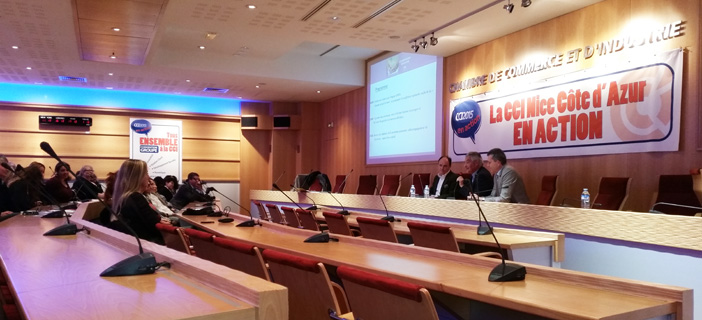The Nice Côte d’Azur Chamber of Commerce and Industry signed a partnership with the Antoine Lacassagne center and the Antibes hospital center on Tuesday, January 27 in Nice. Together, they aim to allow caregivers to attend end-of-life companion training.
IFPS*, the Hospital Center, and the Antoine Lacassagne Center have decided to join forces to improve the “End-of-Life Companion” training. The goal is for it to meet the expectations and requirements of professionals who wish to be recognized as “references” or “resource persons” within their structure.
“We need to work on the support of the elderly in our area. It seemed useful to us to train people in end-of-life companionship. It’s a difficult and delicate subject. Caregivers face complex situations, and we deemed it necessary to train them,” says Bernard Kleynhoff, President of the Nice Côte d’Azur CCI. “When you face end-of-life situations every day, you need to be well-trained and supported to endure and continue to do it in the best possible conditions. That is the purpose of this partnership,” he continues.
The training lasts 216 hours over 10 months, with three days per month. It is divided into three parts:
– Supporting dying people: The psychology of dying children, the psychology of dying adults, stress and emotion management, patient rights
– Approaching death: Death and its approach, grief, the culture of others, the family
– Promoting communication: Professional ethics, communication and listening, non-verbal communication
Death and grieving are too important, too unique moments in life to be left to chance availability. The goal of improving caregiver training is why this pact was signed between the three collaborators. They wish for the training to be nationally recognized. “Today we are awarding 12 diplomas to the first graduates. At the same time, we are working for this diploma to be nationally recognized by the end of 2015,” announces Bernard Kleynhoff.
Marina Tsono, a laureate with high honors, shares: “I work in the home care sector. I have encountered people who died in front of me. I didn’t know what to say or do. You feel powerless. But with this training, we have tools that allow us to better support the families. One of the main tools is listening. We listen a lot.”
“I worked in a hospital where we acted with urgency and speed. I rediscovered my job as a nursing assistant through which we humanize and take the time to care for the patient. With this training, I learned a lot, particularly about myself. Active listening is important. You need to be present before the person without failing. I was given tools to feel comfortable during this listening,” recounts Sylvie Dutto, a laureate with high honors.


